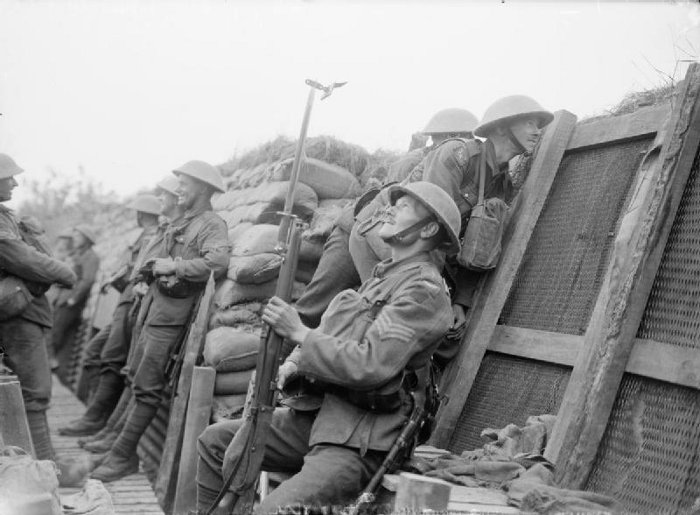Missouri S&T News and Events

Soldiers wait in a trench during World War I. Public DomainIt was the “War to End All Wars,” and America’s entrance into the conflict on April 6, 1917, dramatically shifted World War I in favor of the Allies.
“The U.S. had a major impact on the outcome of World War I,” says military historian Dr. John C. McManus, the author of 12 books on war and military history.
Advances by both the Allies, led by France and Britain, and the opposing Central Powers, led by Germany, essentially stalled along the Western Front between 1915-1917. The reasons for this stalemate were many, including the horrors of trench warfare. Soldiers on both sides were holed up in trenches to avoid the persistent spray of machine gun bullets and shrapnel from artillery shells. Whenever an offensive attack was made, infantry soldiers were met with barbed wire, the hail of bullets, artillery explosions and, eventually, poison gas.
“American soldiers entered combat in large numbers at just the time when German offensive power was beginning to wane,” says McManus, Curators’ Distinguished Professor of history and political science at Missouri S&T. “France and Britain were also nearing exhaustion.”
Soldiers were demoralized and sick, dealing with ailments like trench fever, which caused them to suffer from high fever, headaches, aching muscles and sores on the skin. When the first 14,000 U.S. troops arrived in France on June 26, 1917, more than two months after America joined the Allies, it provided a major boost to not only firepower, but also morale, McManus says. By the summer of 1918, and after the Selective Service Act had drafted 2.8 million men into service, the U.S. was sending some 10,000 fresh soldiers to France every day.
But the U.S. was providing the Allies with more than fresh, healthy soldiers.
“The U.S. government’s Food Administration, headed up by future president
Herbert Hoover, infused ...
Read More
No comments:
Post a Comment
Note: Only a member of this blog may post a comment.